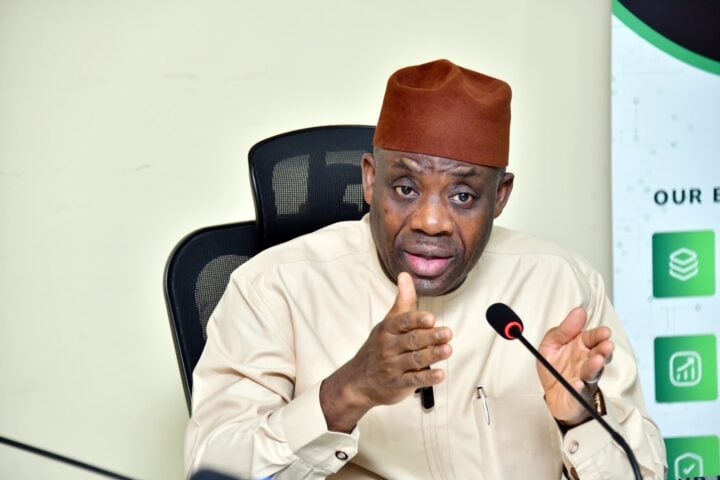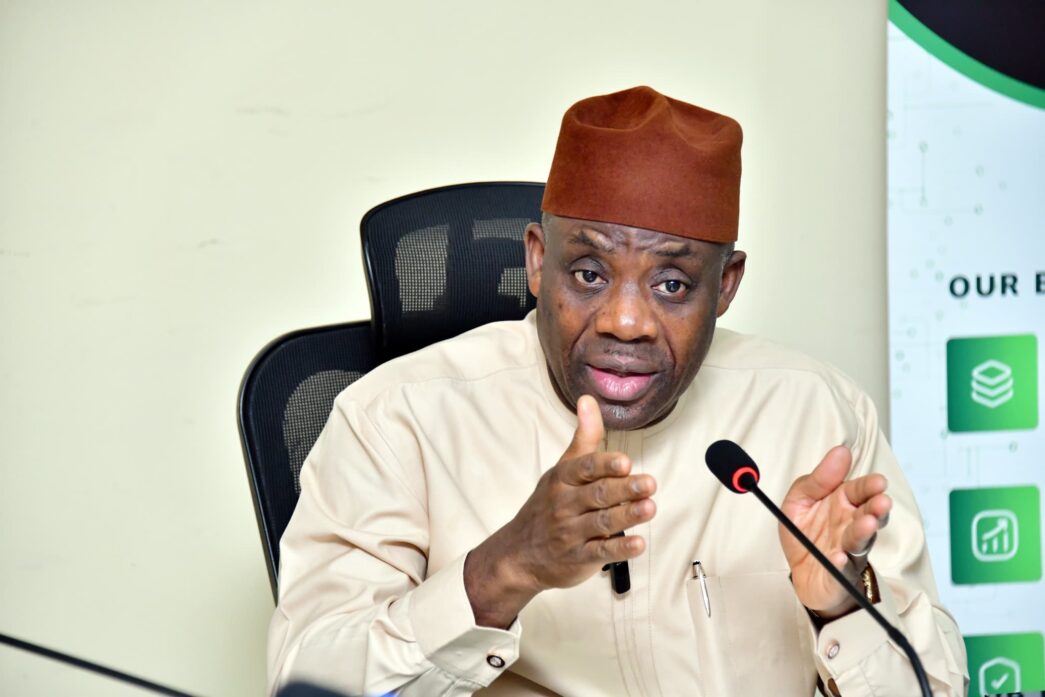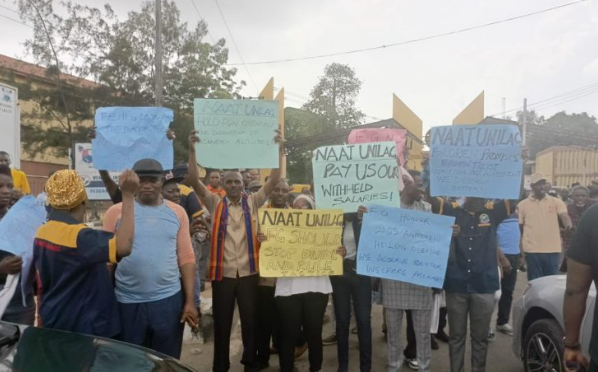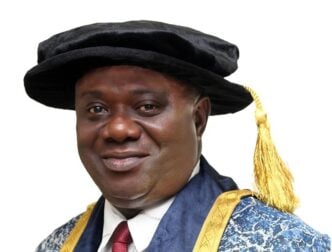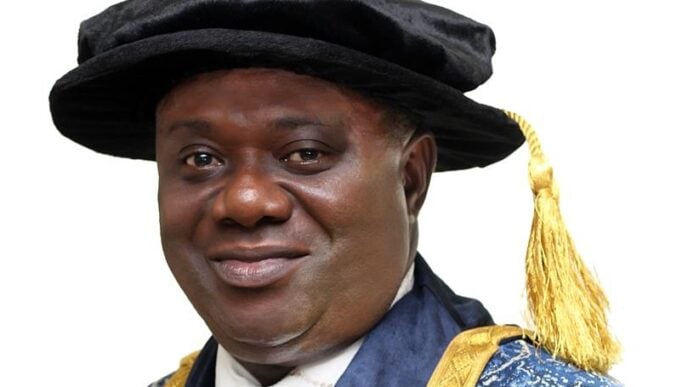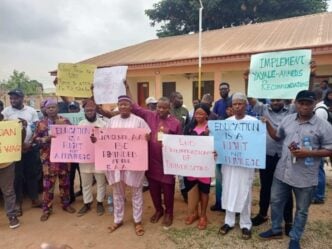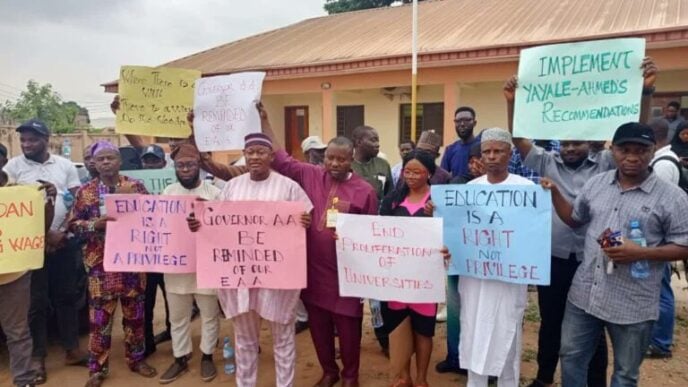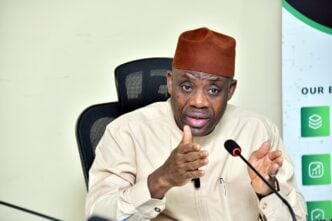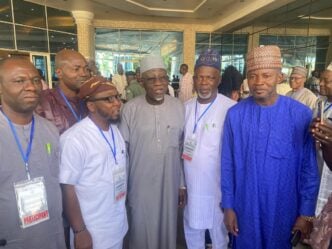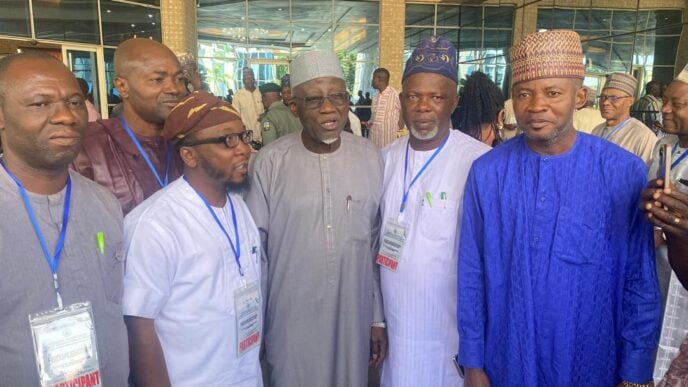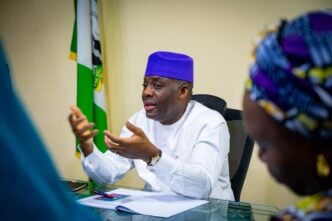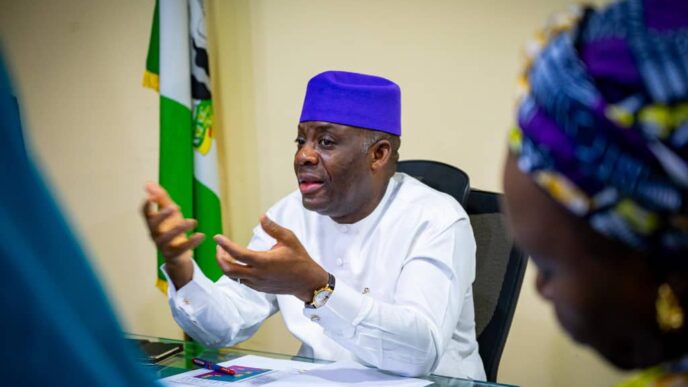Tunji Alausa, minister of education
Tunji Alausa says Nigeria is deepening investments in artificial intelligence, learning analytics, and digital infrastructure to accelerate the country’s education reforms.
The education minister spoke on Wednesday in Abuja at the MoodleMoot Africa Conference 2025, themed “Leveraging the Power of Disruptive Technologies for Africa’s Educational Transformation.”
Alausa stressed that technology has become central to Africa’s efforts to promote access, equity, and excellence in learning.
The minister, who welcomed participants on behalf of the government and the National Open University of Nigeria, said the conference presented an opportunity for African educators to strengthen collaboration and achieve sovereignty in learning systems and data.
Advertisement
Alausa highlighted several technology-driven policies introduced by the federal government, including the ICT-in-Education Policy (2019), Science and Technology Education Policy (2020), and the Open Educational Resources Policy (2024).
He said these policies aim to standardise digital tools, align skills to industrial needs, and ensure publicly funded content remains free.
He added that agencies such as the National Information Technology Development Agency (NITDA), Tertiary Education Trust Fund (TETFund), Teacher Registration Council of Nigeria, and the National Universities Commission (NUC) are collaborating.
Advertisement
Alausa acknowledged NOUN’s pioneering role in deploying Moodle at scale to deliver open and distance learning across Nigeria.
He noted that NOUN has now integrated AI-assisted tutoring, multilingual content, and early-warning analytics to support learners.
Olufemi Peters, the vice-chancellor of NOUN, described MoodleMoot Africa as a movement that unites academics, technologists, and innovators across the continent to promote inclusive, technology-driven learning.
He noted that the third edition of the conference—being hosted in Nigeria for the first time after South Africa—demonstrates the continent’s growing confidence in digital education.
Advertisement
“Through Moodle, technology has become a bridge that connects rural learners to global classrooms and empowers teachers to become digital architects,” Peters said.
The VC revealed that the conference features over 90 paper presentations and four high-impact panel sessions organised around inclusive access, pedagogy innovation, and building sustainable Moodle ecosystems.
